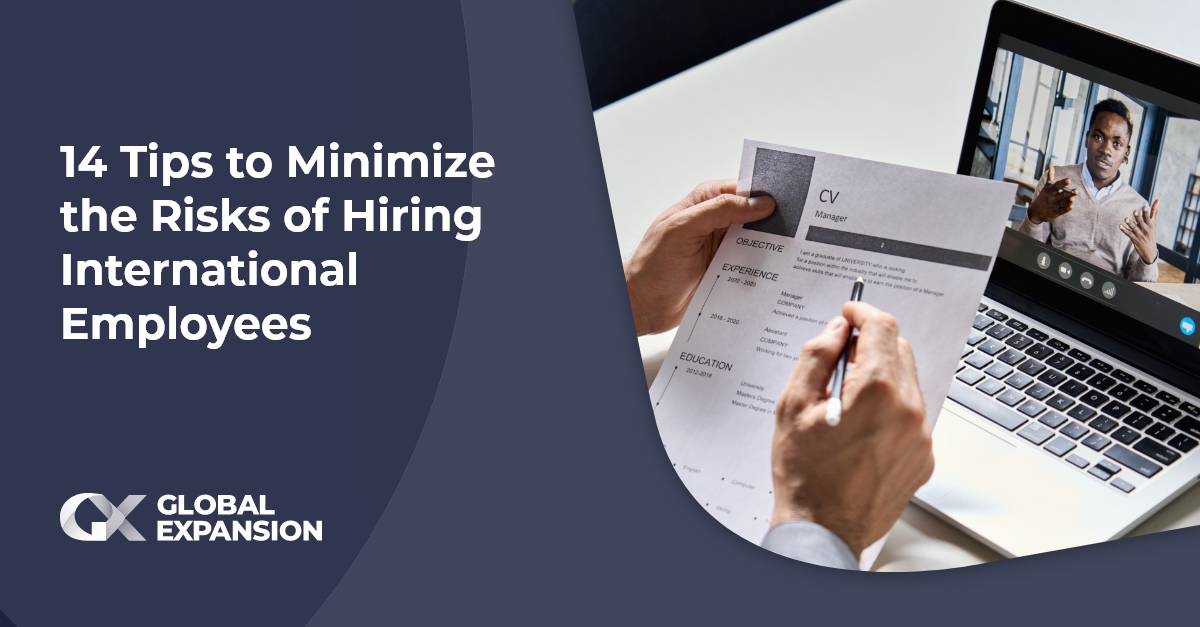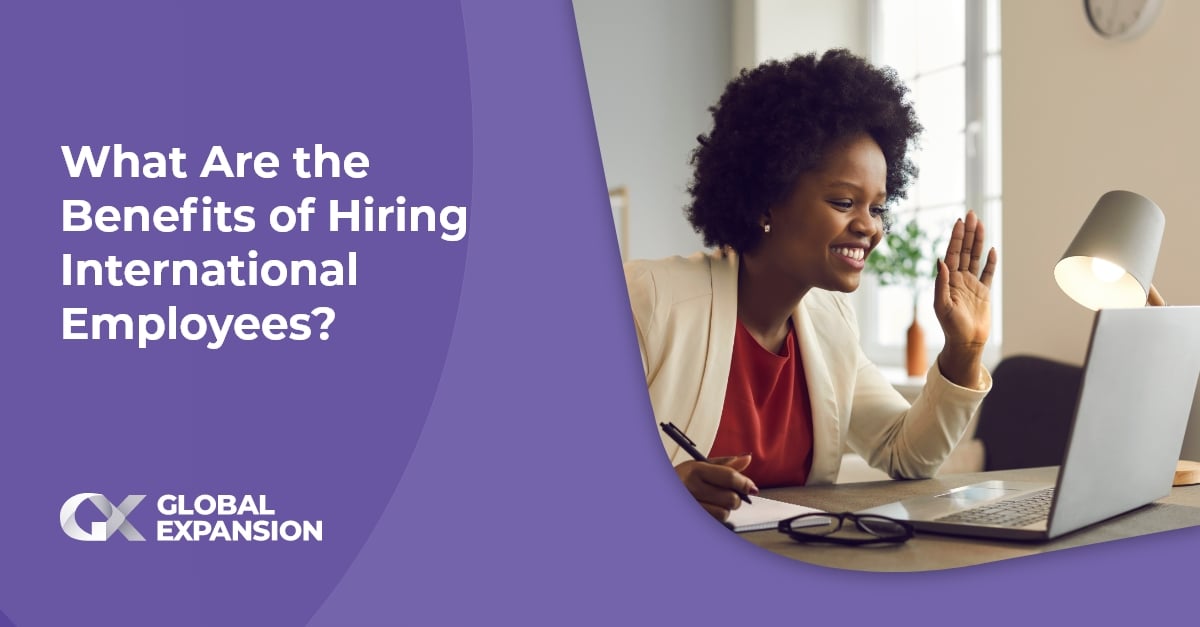International expansion is an ever-growing trend. This is due to the increasing scale of global markets and the associated financial and talent acquisition opportunities that come with them. However, it doesn’t come without risks.
In the World Economic Forum’s ‘Global Risk Report 2020’ they mention fiscal crises, unemployment and energy price shock as some of the biggest economic risks to organizations. So how can you prepare yourself? Here’s how to manage economic risk in international business.
- Deployment Timescales
- International Fiscal Crises
- The Changing Price of Utilities
- Budgetary Issues
- In-Country Compliance
- Staff Hire and Management
- Currency Risks
Deployment Timescales
Timelines provide you with a framework. If you’re running over the timelines you’ve set for yourself (through no external issue) then you’ve got a problem with efficiency. If you’ve got a problem with efficiency, you’ll likely need to spend more as a result.
Your timescale needs to be consistent, structured and motivating for yourself and your colleagues. It should include key dates you can work to, but also offer room for maneuverability in case any obstacles arise.
The timescale should also align with your existing business processes, objectives and initiatives so that your workforce isn’t stretched too thin or focusing on the wrong thing at the wrong time.
International Fiscal Crises
Businesses in any region must anticipate or prepare for fiscal crises. These types of situations can hit anytime, anywhere, but are usually preceded by a number of warning signs. We all remember the 2008 financial crisis, the effect of which was felt around the world.
The WEF’s Global Risk Report mentions high international government debt and small amounts of fiscal stimulus in certain areas as causes for concern. This is especially pertinent to developing countries with limited infrastructure.
To help mitigate these risks, choose a territory for expansion with good infrastructure and a business-friendly government. While this won’t negate the possibility of an international fiscal crisis, working within a country that would employ financial incentives for businesses during crises helps. Take, for example, the UK’s response to the COVID-19 pandemic. When the country went into lockdown, the UK government agreed to pay 80% of the wages of employees that are eligible.
If there’s a crisis within a specific country that you’re operating within, make sure that you’ve drawn up a quick exit strategy, easing any associated losses you may encounter as you withdraw.
The Changing Price of Utilities
Every business needs energy and energy prices are different from country to country. For example, electricity prices per kilowatt-hour (kWh) were priced at $0.05 in Saudi Arabia. In contrast, in Bermuda, the price was $0.39 per kWh.
While they may represent a small part of your overheads, you must still anticipate how energy prices can increase over time. They especially affect manufacturing companies and businesses that use a lot of processing power.
There’s also the growing shift to renewably-sourced energy that businesses have to be aware of. It’s not only increasingly attractive to customers and investors, the trend is that renewables are getting cheaper. According to Consumer Affairs, electricity generated by fossil fuels costs between 5 and 17 cents per kWh, whereas that which is generated from solar costs between 3 and 6 cents per kWh.
Budgetary Issues
Your budget needs to account for everything. Plan for eventualities such as currency conversions and the verification of import and export payments, amongst other things.
You must determine the relative costs of expansion before committing to anything in writing. For example, these costs can be made up of:
- Vehicle, transport or travel costs.
- Rent.
- Staff recruitment and training.
- Researching and scouting overseas markets.
- Any hardware or software that needs to be locally sourced.
- Networking-related costs.
- Translation services.
- International supply chain.
- General costs, such as salaries and utilities.
Financial ability and preparedness also accounts for practices like the awareness of corporate regulations, tax compliance and sales reporting - it’s not just how financially able you are to expand.
Having a suitable and well developed budget is a great way of managing economic risk during international expansion as it gives you healthy financial ranges to stay within.
In-Country Compliance
Defining in-country compliance is easy: It’s the process of keeping up-to-date with and abiding by the regulations within a specific market. Getting it right, however, can be tricky. Especially if you’re doing it in a country that’s unfamiliar to you.
When operating a venture in another country, you have a number of options for compliance management. You can either:
- Manage compliance centrally.
- Manage compliance from the local entity.
- Work with a Global Professional Employer Organization (PEO) to manage that compliance for you (we’ll come to this).
In the first case, you’ll have to implement cross-border management (which can be tricky due to unfamiliarity with the market and dealing with timezones). The second case, you’d work in tandem with your entity to adapt to new regulations. For example, if the local entity is made up of relocated employees, you’ll need to track how long their visas stay valid.
Finally, you can work with a PEO who can help guarantee international compliance. It’s their job to maintain the bespoke knowledge and experience of global compliance legislation, making it easier for you to manage economic risk within your expansion. In short, working with a PEO eases the strain of working with two sets of labor, tax and HR laws.
For more information on in-country compliance and the requirements it needs, read our blog here.
Staff Hire and Management
When managed from another country, hiring and onboarding can be difficult, You don’t want to waste money on a lengthy process only to find out the employee is not the right fit for your organization.
The process is long winded. You need to consider how you’re going to train an employee, how to set up their contracts and payments and also how you’re going to teach them the values of your company. Plus, you also need to make it clear about the objectives you’re pursuing.
Similarly, the employment process needs to include background screening. Like any employee in your home country, you want to make sure you’re interviewing and then hiring the top talent.
One way of mitigating the risk of poor or unlucky employee management is to partner with a PEO for this process. They help to screen the talent and then onboard them. Some PEOs even have the ability to onboard a new employee within 24 hours.
Currency Risks
Currencies are affected by many things. The financial wellbeing of that country, the health of the market, international diplomacy, the stock market… the list goes on. Before entering a specific territory, companies need to research the complex history and economic relationships at play in that country.
For example, think of Argentina. Their gross domestic product (GDP) grew massively in the late 19th and early 20th centuries for a number of reasons. It was, at one point, richer than the European economic powerhouses of France and Germany.
However, after World War One, the Great Depression and other economic failings (such as placing most of their capital inside the agricultural sector, a string of military coups and hyperinflation) their economy slowed down drastically.
One way of planning against this is by investing in a market/country that’s part of an incredibly diverse economy. For example, the USA has an economy made up for traditional sectors such as agriculture and construction, but it also has more niche sectors that aren’t found in some countries. Think of financial services, retail and manufacturing.
It’s worth being part of an economy that won’t buckle after one chunk of it is hit by economic hardship. Diversification is a top priority for all in the future.
Evidently, there are many considerations for your business on the eve of international expansion. For example, how exactly does a Global PEO support your business throughout this exciting transition? For information on this and other key factors affecting international expansion, check out our guide.
Expansion Considerations for Rapidly Growing Businesses
In our guide, we cover the most important topics for those businesses beginning their international expansion journey. We explore the growth options you can choose, as well as the top considerations for businesses in this position. We also give guidance on risk mitigation and the overall benefits of working with a PEO.
To get your copy, simply click the button below.
Subscribe to our blog
Receive the latest GX blog posts and updates in your inbox.





